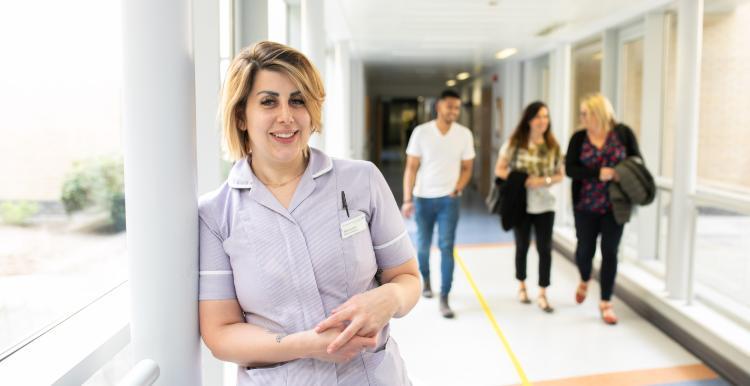Understanding your GP practice structure

Understanding GP practices
Every GP practice is unique with a range of healthcare professionals that are on hand to support your health needs. Staff include clinical staff, allied health professionals, administrative staff and extended primary care services roles.
Find out how general practice teams work together in this video:
What are some of the roles you may find in a typical GP practice?
Mental health care coordinator
They act as a central point of contact for patients with mental health needs working within GP practices to assess, guide and streamline support.
They can:
- Carry out assessments
- Provide advice and support to manage your condition
- Support you to access mental health services and community resources.
Watch this video to learn more:
Social prescriber
A social prescriber often works across multiple surgeries and connects patients with various different non-medical community support to improve wellbeing.
Their role includes:
- Supporting you to manage your health and wellbeing
- Giving you time to focus on what matters to you
- Helping you to access support services and activities in your local area.
Watch this video to learn more:
Clinical pharmacist
They are highly trained pharmacists who help by:
- Conducting medicine reviews
- Agreeing and making changes to your prescriptions
- Advising about medicines and possible side effects particularly patients with long term conditions.
Watch this video to learn more:
Pharmacy technicians
Technicians are skilled members of surgery teams who help and support patients and the wider surgery team. They provide essential support by:
- Demonstrating proper medication use
- Supporting clinical pharmacists with medication reviews
- Offering advice on healthy lifestyle choices.
Paramedics
Paramedics provide an emergency expertise into the GP practices. Their role within a GP practice includes:
- Assessing and treating certain health conditions,
- Attending home visits for patients who need help at home
- Ordering tests and interpreting results.
Reception team
Reception staff can help you by:
- Getting you an appointment with the right clinician as quickly as possible
- Identifying services, you can access with a GP referral
- Making appointments for new kinds of care of services.
Physiotherapists
Physiotherapists are experts in muscular-skeletal issues and can support patients who have problems with their bones, muscles and joints, by:
- Diagnosing and treating muscular and joint conditions
- Advising on how to manage your condition
- Referring you on to specialist services.
Advanced nurse practitioners
Advanced Nurse Practitioners are nurses educated to Master’s level who have undertaken extra training. They are skilled and experienced healthcare professionals who can support patients by:
- Prescribing medicines
- Supporting you with long-term conditions
- Refer you to secondary care or specialist services, if needed
- Ordering tests, investigations and interpreting results.
Watch this video to learn more:
General Practitioner (GP)
GPs treat all common medical conditions and refer patients to hospitals and other medical services for urgent and specialist treatment.
Watch this video to learn more: